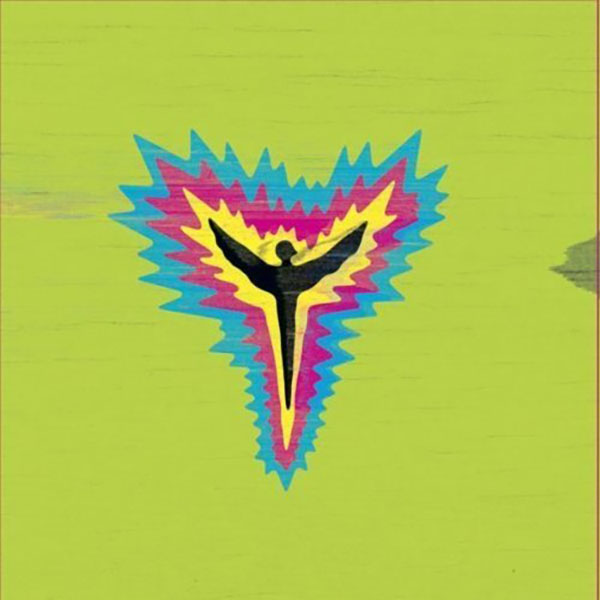
by Ian Mann
June 09, 2011
/ ALBUM
Thirteen short instrumental pieces that blur the boundaries between jazz, rock and world music but are united by their love of groove.
Wilson Huggett Project
“Field Of Hope”
(Jazz Direct)
Five years after the release of their “Max Roach Park” album the bass and drum team of Dan Wilson and Mark Huggett return with a new album “Field of Hope”. Released on Huggett’s Jazz Direct imprint the album was recorded in Durban and London and features musicians from both the UK and South Africa. The music explores global grooves in a similar manner to its predecessor but does so this time in a purely instrumental context, the human voice having been an important constituent of “Max Roach Park”.
Wilson (who also contributes keyboards) and Huggett are joined by a number of friends including Yngvil Vattn Guttu (trumpet/guitar/flute), James Tartaglia (tenor sax) Luke Townsend (alto and soprano sax) Dave Willetts (percussion) and Thor Kvande and Robert Payne (both keyboards). Much of the music was brought together via the wonders of the internet with music files recorded in South Africa being downloaded and mixed in London with digital technology allowing musical ideas to be bounced back and forth between continents.
The material consists of thirteen short instrumental pieces that blur the boundaries between jazz, rock and world music but are united by their love of groove with elements of Wilson’s South African roots always evident. Opener “Mindae” features keyboard drones, an insistent bass groove cum hook, exotic percussion and the contrasting horn work of Guttu on vaguely Milesian trumpet and Tartaglia on more acerbic tenor sax.
“Tribute to Andy Goldsworthy” (presumably a homage to the acclaimed British sculptor) opens with gently shimmering kalimba-like keyboard tones before morphing into a funky, Rhodes driven groove topped by the horn lines of Tartaglia and Townsend.
“Durbanite” features Wilson’s sturdy Jaco Pastorius inspired bass and Huggett’s solid drumming allied to Hvande’s swirling Hammond sound. Guttu adds fine muted trumpet and Tartaglia, who plays on virtually every track, weighs in with a powerful tenor solo.
“Drakensberg” emerges from electronic clicks and glitches that sound like the crackling of camp fires to establish a mighty groove. This is deeply cinematic music that evokes the grandeur of a Western movie theme but somehow transposes it to South Africa. The lines of the twin saxophonists conjure up an epic vista aided by sweeping keyboard textures and that omnipresent groove.
A squall of dirty keyboard sounds introduces “Midnight Carjack”. Bludgeoning drum grooves and belligerent tenor sax help to emphasise the violence suggested by the title as Huggett and Tartaglia duel with each other in invigorating fashion.
The following “Mbeki’s Lament” varies the mood courtesy of Wilson’s guitar like bass, a more reined in Tartaglia, and reflective solos from Payne on piano and Townsend on alto. Keyboard generated voices provide a soothing backdrop.
Parts of “Bunny Chow” sound almost tribal with Willetts’ percussion a dominant voice. The African elements are offset by the European influence of Payne’s piano. Probably the strangest track on the album it’s a bizarre juxtaposition of styles and influences.
Guttu’s “Skipping Along The Fence” is much more down to earth with its rock grooves and earthy tenor sax. The composer plays guitar here rather than her usual trumpet but the powerful Tartaglia is the dominant instrumentalist.
“The March Of Time” is suitably insistent based around Wilson’s growling bass motif and Huggett’s implacable drum groove. Percussion, keyboards and tenor sax provide additional colouration.
The impressionistic title track is a departure from the Project’s usual groove based approach and features guitar like bass, the floating pulse of Huggett’s drums and the contemplative sax ruminations of Tartaglia and Townsend. It’s the most lyrical piece on the album and one of the most conventionally jazzy. The following “Fortieth” maintains the mood, a charming vignette featuring a delightful dialogue between Guttu’s trumpet and Wilson’s guitar like bass chording.
“Romero” features hypnotic grooves, vocalised trumpet and eerie synthesised soundwashes. The album ends with Guttu’s “Up High” which features her high register flute alongside the chimes and shimmers of Willetts’ percussion, however it’s little more than a snippet.
“Field Of Hope” is a worthy successor to Max Roach Park and is a lovingly crafted album that touches several bases. There’s little orthodox jazz here and some of the melodic themes might have been developed a little more but fittingly for a session led by a bassist and a drummer the emphasis is very much on the groove. Wilson and Huggett like to model themselves on the legendary reggae rhythm section of Robbie Shakespeare and Sly Dunbar and they certainly have that familiarity and tightness but there’s precious little reggae here either.
As I mentioned when I reviewed “Max Roach Park” their music often reminds me of Jah Wobble’s with its heavy reliance on grooves and low register sonics plus a strong world music influence, in this case the music of South Africa. The instrumental nature of this recording also recalls for me the “Long Hello Vol 2” album recorded by the former Van Der Graaf rhythm section of bassist Nic Potter and drummer Guy Evans way back in 1981.
Let’s hope that Wilson and Huggett can perhaps assemble a band featuring at least some of these musicians and play some of this music live.
The album is for sale via itunes and through CDbaby in the USA and Jazzcds.co.uk in the UK
Itunes Link; http://itunes.apple.com/gb/album/field-of-hope/id433618511
Jazzcds link; http://www.jazzcds.co.uk/artist_id_1317/cd_id_1738
CDbaby link; http://www.cdbaby.com/cd/wilsonhuggettproject
blog comments powered by Disqus